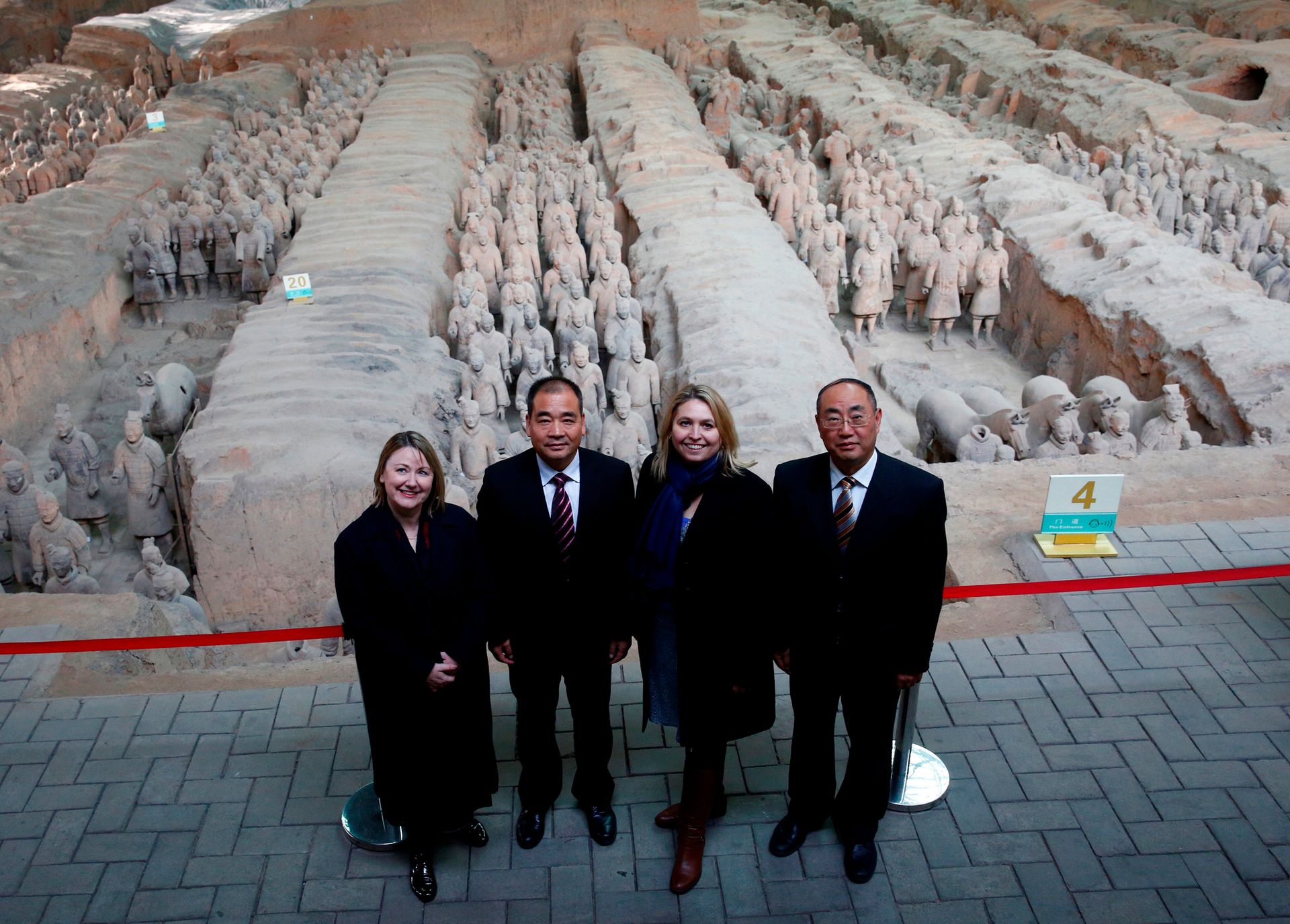The Terracotta Warriors are marching back to the UK in 2018 but—for the first time in more than 30 years—to a museum outside of London. National Museums Liverpool and China’s Shaanxi Cultural Heritage Bureau signed an agreement in November to send a selection of the sculptures to Liverpool’s World Museum from February to October 2018. The Qin-era statues last visited the UK in 2007, for a show at the British Museum that attracted 850,000 visitors. A smaller contingent of the terracotta army came to the City Art Centre in Edinburgh in 1985.

While the warriors are set to headline the exhibition in Liverpool, it will also include a number of loans from Chinese museums and institutes that have never been on show in the UK before, covering over 500 years of Chinese history. “Liverpool has the oldest Chinese community in Europe, and we are proud to be strengthening the city’s connections with other cultural organisations in China,” said David Fleming, the director of National Museums Liverpool, in a statement. “An exhibition of this scale is sure to attract visitors from all over the UK and Europe.”
Since 1974, archaeologists have discovered more than 8,000 life-sized Terracotta Warriors at the vast burial site and tomb complex of Qin Shihuangdi, the First Emperor of China (221 to 206 BC), near Xi’an in North West China. Ancient Chinese burial practices, which continued into the later Han Dynasty, involved building vast underground chambers filled with food and drink, as well as clay people and animals, to serve the emperors in the afterlife. Archaeologists continue to make new discoveries at the mausoleum, which covers an area of 22 square miles.

